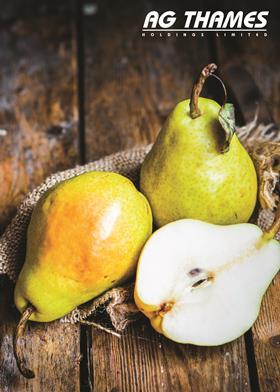
Investment in green technology has helped AG Thames to grow its business against a backdrop of ever-tightening budgets. While consumers continue to demand low prices, and supermarkets comply, often the only way to grow is through more efficient business practices – something AG Thames is embracing.
“A combination of the ongoing need to control costs, increase efficiency, and the general economic climate results in little opportunity for organic growth,” says chairman Leon Aichen, who founded the Kent-based family business in the 1970s.
“We are therefore committed to supporting our long-term future, with particular investment in sustainable technologies, such as biomass on our farms in Norfolk, which should deliver a significant reduction in net carbon emissions over time.”
Chingford Fruit, part of the AG Thames Group, is a good example of how environmental business practices are paying off. The company has hit its target of zero waste, saving around £220,000 per year, and has also switched to LED lighting, cutting energy consumption by 80 per cent compared to standard lighting.
As well as green technology, the company remains focused on product innovation, and its profits were boosted by increased involvement with soft fruit, seeing sales jump from £37 million to £40m. Such is its commitment to soft fruit, the group created a Spanish subsidiary called Soloberry to pursue new opportunities throughout Europe.
“The varietal activity, combined with a number of exciting berry collections, allows us to deliver innovation to our customers going forward,” says Aichen.
“Overall, despite the economic climate, we believe the group is well placed to meet its challenges and continue its successful development into the future.”
On the citrus side, the Queen Satsuma had its most successful season this year since the variety launched in 2006, which has driven a market-leading share position for its customer.
And AG Thames has also benefited from a revived interest in pears, with its UK-grown Sweet Sensation pear seeing its strongest performance to date during 2013. Meanwhile, the Concept Pear Orchard, developed in partnership with Sainsbury’s and East Malling Research, has started to produce more than 54 tonnes per hectare – over three times the national Conference pear production average of 14 tonnes per hectare.
It has also seen the first small sample volumes of its Red Love apple, while results of European trial plantings of Burchell and Oz Peach are “encouraging” and generating good grower interest in future plantings.
Bolstered by a rise in profits at its logistics arm Solstor – originally created to provide AG Thames with its own produce transport, but now winning contracts for its services and seeing figures go from £53m to £58m – the group is certainly looking to move up the ranks next year.






No comments yet